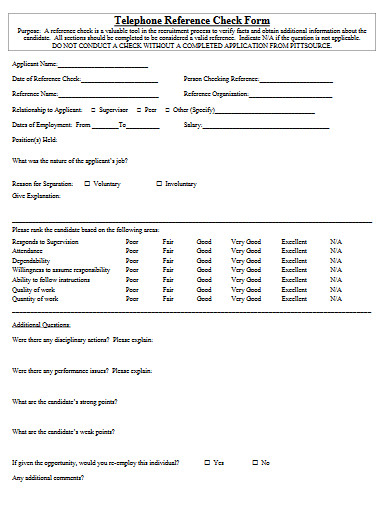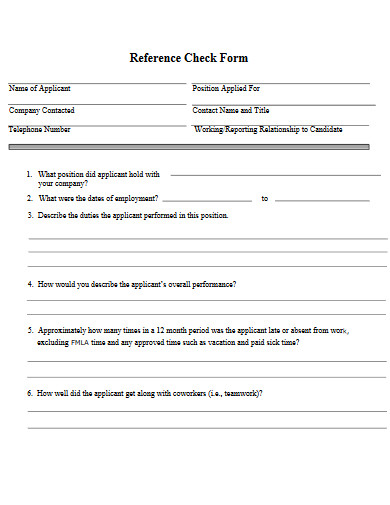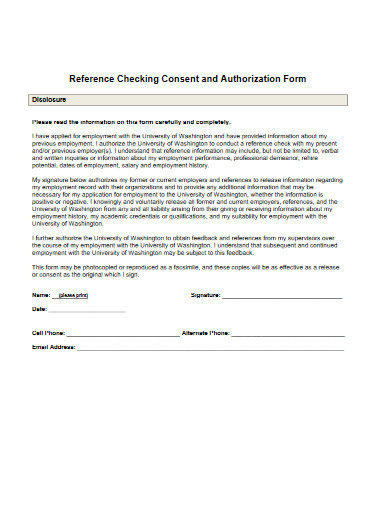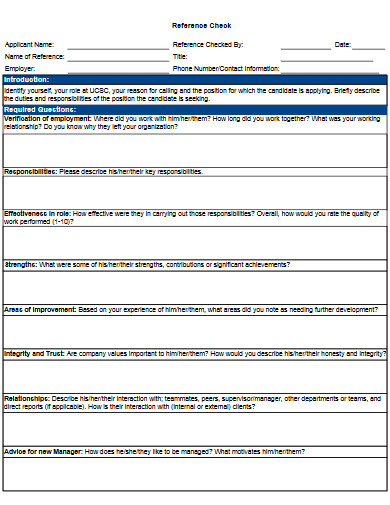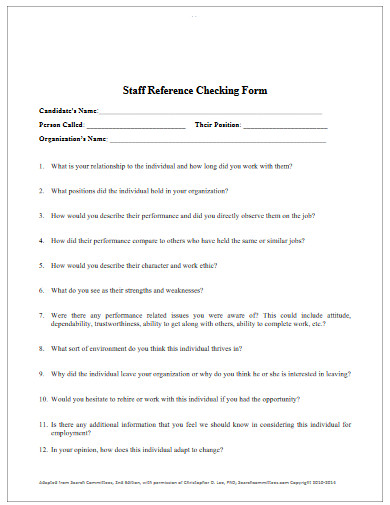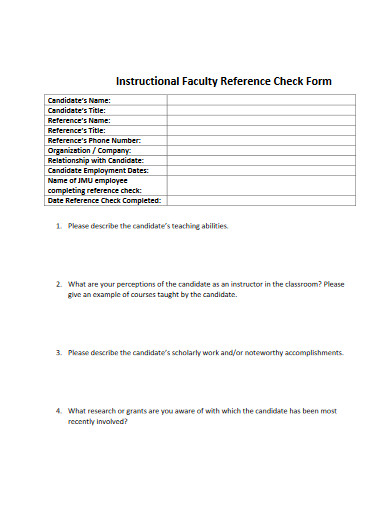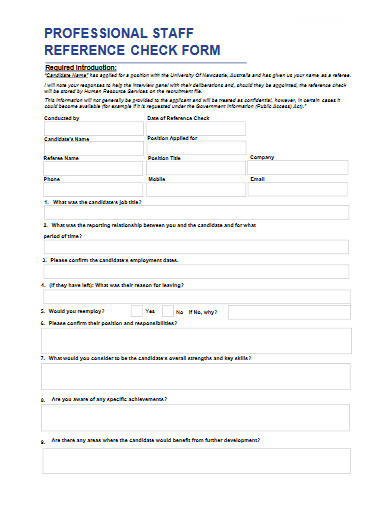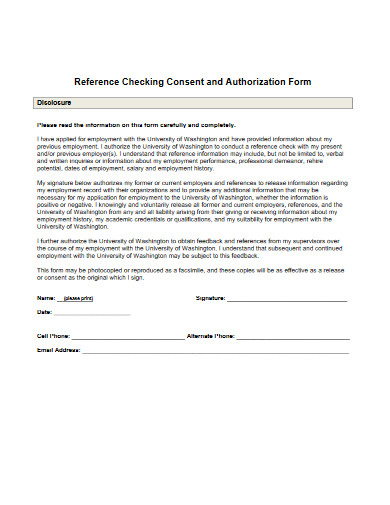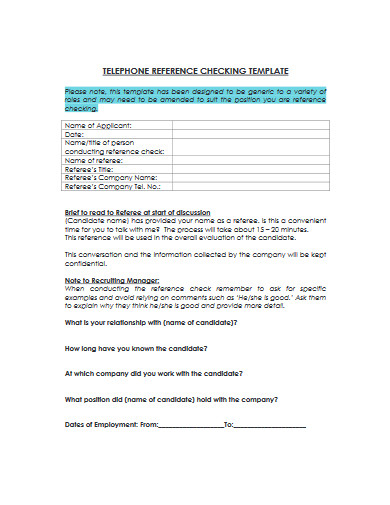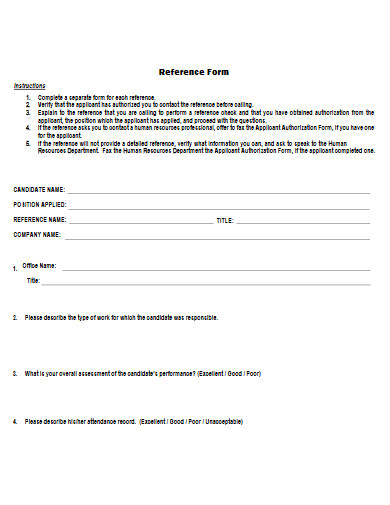10+ Reference Checking Form Examples to Download
When you apply for a position, there is a specific section on your resume that employers analyze. It’s the section where you’ll find all the references. By checking references, employers may obtain details from anyone other than the career seeker. Fact-checking helps the employer to get a feel of the candidate’s job style, how they deal with others, and how they will blend into the business community. Employers validate a career applicant’s credentials, which are professional contacts that may testify to the applicant’s skills.
To learn more about reference, checks and read the sample and guidelines given below:
10+ Reference Checking Form Examples
1. Reference Checking Form Template
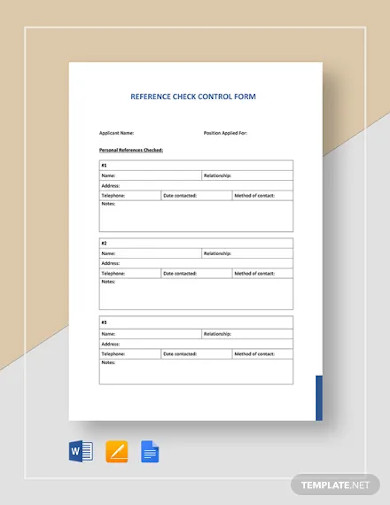
2. Telephone Reference Check Form
3. Reference Check Form
4. Reference Checking Consent Form
5. Sample Reference Check Form
6. Staff Reference Checking Form
7. Faculty Reference Check Form
8. Professional Staff Reference Check Form
9. Reference Checking Consent and Authorization Form
10. Telephone Reference Checking Template
11. Reference Check Form Example
What Is a Reference Check Form?
A reference check is a technique that is used during the recruiting process to validate each job candidate. The method of obtaining references is an essential aspect of the career application. A professional referral is needed when you apply for a position. That could be the old colleagues, coworkers, or bosses. By utilizing a form and standard questions, employers will gather the same information about the credentials of any applicants they are reviewing.
How to Conduct a Reference Check?
If you want to check your candidate’s references, you must read and follow the steps outlined below. However, depending on who you are contacting, you can repeat the process and ask more questions.
Step 1: Verify Your Candidate’s Name
First and foremost, double-check the candidate’s name before calling a reference. While this step will seem to be self-evident, you never know whether it can root out unethical candidates. Whether you’re contacting a former boss, make sure to double-check their title and dates of employment.
Step 2: Ask How They Know The Candidate
Candidates can include a list of various types of references, depending on the specifications. For instance, the company can expect the applicant to have at least two personal references and two technical references.
In contacting each reference, ask about his or her relationship with the candidate. That way, you can double-check the facts given by your candidate’s sources. It even assists in verifying who you’re speaking.
Step 3: Recognize What Makes a Candidate a Good Fit
Hiring someone who isn’t eligible is the last thing you want to do. Take time to check the candidate’s reference. Determine if he or she is a suitable match for the job. Explain the complexity of the work to the guide while you’re recruiting applicants. Inquire whether they think the reference will be good in the role and why.
Step 4: Determine the Candidate’s Strengths and Weakness
Finding out the candidate’s strengths and weaknesses can be one of the key aims of the job reference check. Be sure to ask the reference to list the candidate’s strengths and weaknesses, along with the rest of the questions. For instance, you might inquire about the candidate’s two strengths and two disadvantages or development opportunities.
FAQs:
What does a reference letter contain?
A recommendation letter may contain specifics about you, your relationship with the person you’re nominating, why they’re eligible, and the skills they possess. It’s best if you can include clear explanations and examples to illustrate your encouragement.
What are examples of personal reference?
Personal references may include business acquaintances, instructors, professors, college mentors, volunteer officials, staff, colleagues, coaches, and neighbors. If at all practicable, avoid picking someone with whom you’ve just had sporadic or infrequent encounters.
How long can a letter of recommendation be?
The paper should be 300-400 words in length and objectively portray your persona, accomplishments, and skills. A letter of recommendation is often sent to you directly by the referee, and you can keep it for future reference.
Reference tests are an integral aspect of the recruiting process. They typically take place just before conducting a work offer. That’s why if you create a detailed reference check, download the sample templates above!



